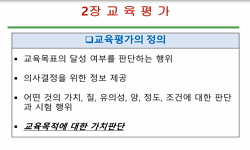Objective : The Neurobehavioral Cognitive Status Examination(NCSE) is a bedside cognitive state examination which is known to have some advantages of sensitivity and also provides differentiated profile about the cognitive state. This study was aime...
http://chineseinput.net/에서 pinyin(병음)방식으로 중국어를 변환할 수 있습니다.
변환된 중국어를 복사하여 사용하시면 됩니다.
- 中文 을 입력하시려면 zhongwen을 입력하시고 space를누르시면됩니다.
- 北京 을 입력하시려면 beijing을 입력하시고 space를 누르시면 됩니다.

신경행동학적 인지상태검사의 임상적용을 위한 연구 : 60세 이상의 연령군을 대상으로 For the Subjects over Age of 60 = A Study for Clinical Application of Neurobehavioral Cognitive Status Examination(NCSE)
한글로보기https://www.riss.kr/link?id=A1996378
- 저자
- 발행기관
- 학술지명
- 권호사항
-
발행연도
1994
-
작성언어
Korean
- 주제어
-
KDC
513.85
-
등재정보
KCI등재
-
자료형태
학술저널
- 발행기관 URL
-
수록면
1329-1342(14쪽)
- 제공처
- 소장기관
-
0
상세조회 -
0
다운로드
부가정보
다국어 초록 (Multilingual Abstract)
This study was aimed to confirm the clinical applicability of the NCSE to the Korean culture and language.
Method : The subjects were 41 normal elderly person and 23 elderly patients with clinically determined cognitive impairments. The criterion-related validity were examined by comparison pass rates and mean scores for each items by level of education. At the same time, the Pearson's correlation coefficients were calculated between NCSE and MMSE-K, and also the sensitivity of NCSE was compared with that of MMSE-K. The relationship between screen and metric items was examined by the calculation of biserial correlation coefficients. The inter-rater and test-retest reliabilities was investigated by the calculation of Pearson's correlation coefficients, Kendall's τbs, and concordance rates.
Result : Adjustment of scores of age and education level was required in some items of NCSE. In consideration of some limitations of BCRS as a normal or abnormal diagnostic criteria in each of the cognitive areas, discriminative validity was acceptable. NCSE was shown to have good correlation with MMSE-K, and also have a lower falsc negative rate than the MMSE-K.
Conclusion : NCSE was considered as a clinically useful bedside cognitive state examination, which can be successfully applied in Korean. patients.
Objective : The Neurobehavioral Cognitive Status Examination(NCSE) is a bedside cognitive state examination which is known to have some advantages of sensitivity and also provides differentiated profile about the cognitive state.
This study was aimed to confirm the clinical applicability of the NCSE to the Korean culture and language.
Method : The subjects were 41 normal elderly person and 23 elderly patients with clinically determined cognitive impairments. The criterion-related validity were examined by comparison pass rates and mean scores for each items by level of education. At the same time, the Pearson's correlation coefficients were calculated between NCSE and MMSE-K, and also the sensitivity of NCSE was compared with that of MMSE-K. The relationship between screen and metric items was examined by the calculation of biserial correlation coefficients. The inter-rater and test-retest reliabilities was investigated by the calculation of Pearson's correlation coefficients, Kendall's τbs, and concordance rates.
Result : Adjustment of scores of age and education level was required in some items of NCSE. In consideration of some limitations of BCRS as a normal or abnormal diagnostic criteria in each of the cognitive areas, discriminative validity was acceptable. NCSE was shown to have good correlation with MMSE-K, and also have a lower falsc negative rate than the MMSE-K.
Conclusion : NCSE was considered as a clinically useful bedside cognitive state examination, which can be successfully applied in Korean. patients.
동일학술지(권/호) 다른 논문
-
주의력결핍과잉운동장애 아동의 주의력평가를 위한 T.O.V.A.의 유용성 : 예비연구
- 大韓神經精神醫學會
- 박난숙
- 1994
- KCI등재
-
- 大韓神經精神醫學會
- 신윤오
- 1994
- KCI등재
-
- 大韓神經精神醫學會
- 김용식
- 1994
- KCI등재
-
- 大韓神經精神醫學會
- 정성덕
- 1994
- KCI등재




 RISS
RISS 스콜라
스콜라







